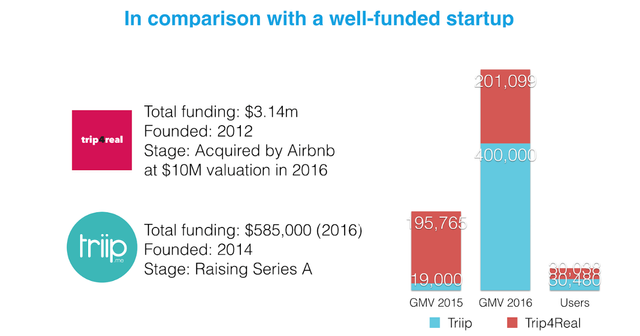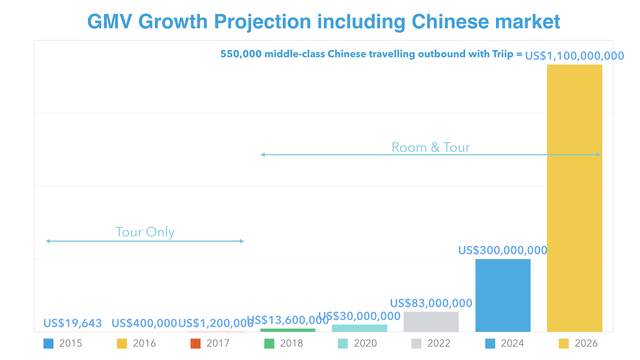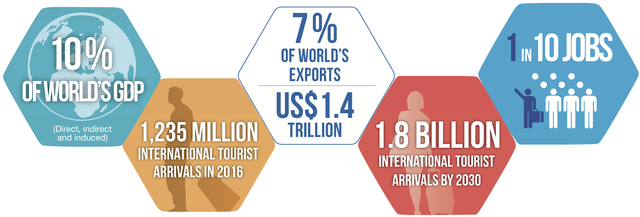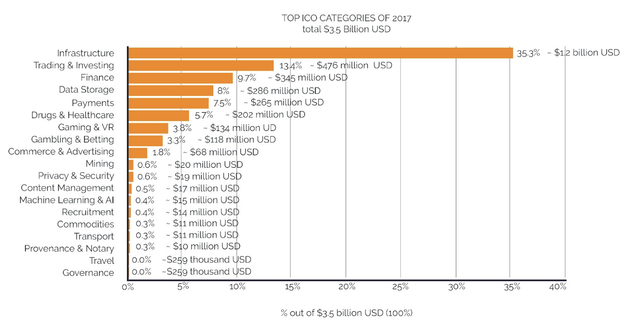.jpeg)
Background Of Triip
“In contrast to many other ICOs, we already have a profitable business and a functioning platform in 227 countries.”
Triip is an online impact-travel company, founded in 2014 in Singapore and serves the market with the very first model of exploring culture tours. Triip has been extremely capital efficient, leveraging on our core team and just US$34K in ads spend to achieve US$1.2 M in revenue and 100k+ users.
Compared to our equivalent competitors, Triips has been true to our initial credo and has avoided being acquired by other giant sharks in the industry. Airbnb in 2016, acquired Trip4real to jump into the local tour market while Triip has been around since 2014.

2016–2017 Summary
Triip earned a seed round investment of US$500K in April 2016 from Gobi Partners/MAVCAP and the CEO of the Pacific Asia Travel Association (PATA), Dr Mario Hardy. Secured with these strategic investors, Triip is now no more than one direct call away from the head of 97 government tourism boards around the world, which is a competitive advantage for sustainable expansion in the travel industry.
With the sustained support from PATA, Bhutan Tourism Board, Seychelles Tourism Board, and FWD Hong Kong, Triip masterminded the world’s first Global Travel Entrepreneur Challenge (GTEC 2016), a 90-day challenge with more than 7,000 participants from all over the world.
In 2016, Triip was among the top 40 startups (out of 2000 companies), chosen by the South Korean government, to receive support and mentorship for expansion into their market. Triip currently has one patent pending in South Korea, with more to come.
In 2017, we focused on growing revenue of 300% from US$400K to US$1.2M with just US$25K in marketing expenses. For further expansion, Triip has launched the world’s first Type-A Retreat in Himalaya for 40+ Founders, CEOs and investors from all around the world.

At the beginning of the 21st century, China was shown to be the most valuable market for tourism. Triip has decided to open our potential model into China and aim to gain 550,000 middle — class outbound travellers by 2026. We think this is a feasible number given that a large number of Chinese travellers tend to visit the previous destination for a second time aiming for a deeper experience. The second time is the precious moment to explore what they have missed before.
Why Blockchain In Travel?
Travel is one of the world’s oldest and longest-lasting industries. As long as there are human beings, there is travel.

Dipping only during times of global economic hardship, the number of international tourist arrivals has increased steadily almost every year. Numbers have more than doubled, with an estimated 1.24 billion arrivals expected in 2016. By 2030, international tourist arrivals are expected to exceed 1.8 billion
Travel and tourism contributed a total of 7.61 trillion US dollars to the global economy in 2016. With a statistic of 1.235 billion global visitors in 2016, 30% are booking tours for their vacation on their own while 70% are using group tours. These target customers are spending US$145 BN on tour bookings per year.
Online tour & attraction gross bookings will more than double from 2015 to 2020, growing from 11% in 2016 to 21% in 2020.
The focus language of current global tourism is in English. Local experts and travellers expected to see expanding of the platform into German, French, Spanish, Chinese, Japanese, and Korean.
However, the blockchain in travel is under-invested. In 2017, there was only US$ 259,000 was invested in travel ICO. But that number is changing in 2018.

Once we have enough infrastructure, trading and investing blockchain companies, 2018 onwards will be the time for utility token as crypto owners will need a way to spend their fund besides investing.
The Future Of Travel Industry
The Dream of Cultural Immersion
In an American Express survey of more than 2,000 individuals in the U.S. conducted in 2013, more than 72 percent of respondents said they would rather spend money on experiences than on tangible objects. In a related survey of American Express Travel Counselors, conducted in 2014, 34 per cent said cultural immersion is what their customers would be seeking above all else from their summer vacations.
“Consumers want to have life-fulfilment experiences when they travel, and they are seeking travel experiences that are closely aligned with their values,”
Laura Fink, VP of Marketing at American Express Travel
In a related poll conducted by American Express, one-third of the company’s travel counsellors said customers planning summer travel were “specifically looking to immerse themselves in the destinations they visit and to travel like a local.”
The ultimate level of travel is to live, breath, feel and experience daily life as a local. This new type of travelling is the key trend for tourism in the near future.
This is a reason for Airbnb to begin focusing on Local Experiences in 2016. Triip, however, began our products to the customer back in 2014.
Travel Brands Desire To Become Experience Platform
The modern world has seen a jump of travel industry navigating for high-class travellers toward wide general travellers. Since the beginning of the online booking industry era, Priceline, Expedia, Ctrip and Tripadvisor can only book accommodations and see the review for the place. The aspect of local tours, local sightseeing and activities is abandoned.
In November 2016, Airbnb acquired Trip4real and officially announced a new concept of travel with fully experiencing both accommodations and travel experiences.
Seeing the OTAs growth, huge hospitality establishments will soon enter the market to retain their customers.
Earlier this year, Marriott invested in PlacePass, a metasearch platform for tours and activities. Hyatt scrapped its old loyalty program and debuted a new entirely focused tool on the concept of experiences, acquiring wellness brands and investing in alternative accommodations along the way. AccorHotels is using its properties to not only serve travellers but locals too, with hyper-local services, all to keep the brand ever-present in the minds of consumers, whether or not they are travelling.
The market pie of extending the definition of travelling sees an upcoming new trend of all-in-one experience. In the past, local tour guides are not considered as a job and local services such as renting transportations, visiting local benchmarks, booking a flight had their separated markets and without any step on between those. However, the growth of internet environment has revealed a new trend of travellers desiring convenient planning for a trip. Therefore, giant OTAs with their advantages of user data is heading to connect and dominate these markets to maximize satisfaction for clients.
For more information about Triip.me and TriipMiles token
🌍 Visit our ICO website: https://ico.triip.me
🐦 Follow TriipMiles Twitter: https://twitter.com/triipmiles
📣 Join Triip Protocol Official Announcement: https://t.me/TriipMiles
🗣 Discuss Triip Protocol: https://t.me/triipmilesICO
🚀 TriipMiles on Steemit: https://steemit.com/@triipme
ℳ TriipMiles on Medium: https://medium.com/triipmiles